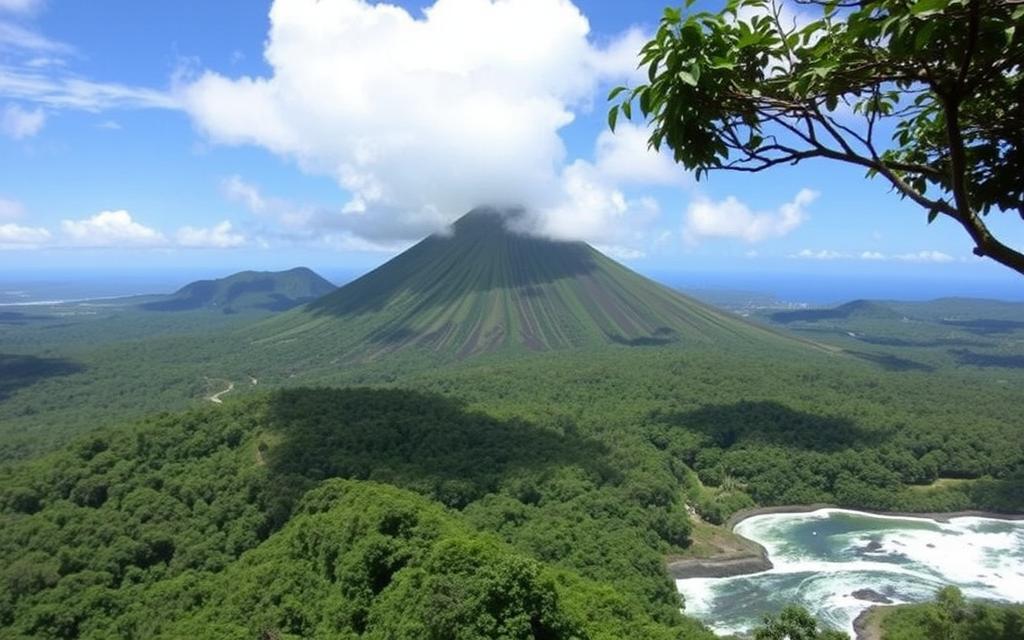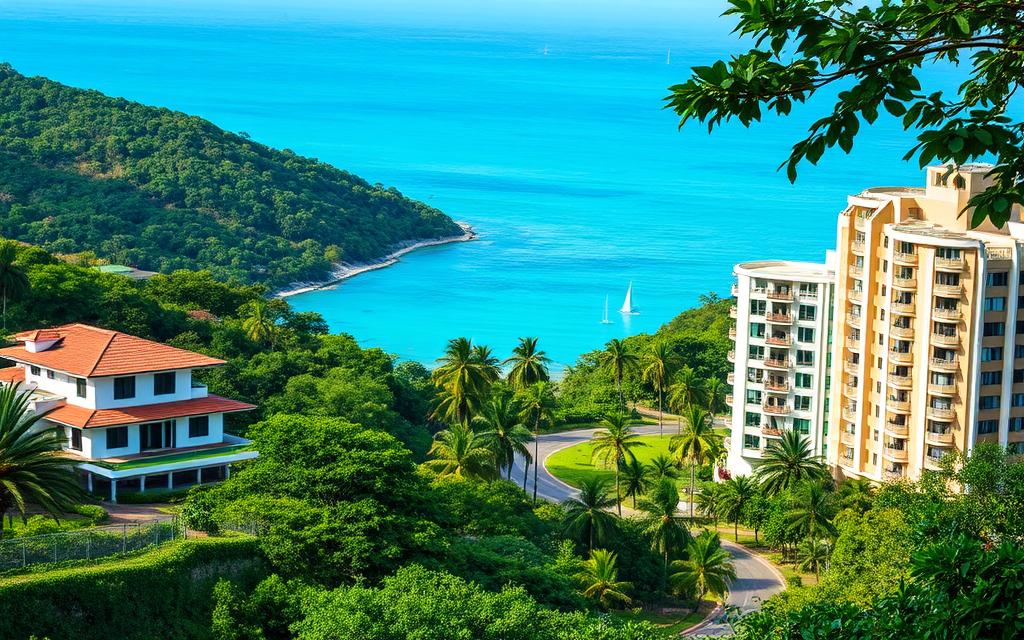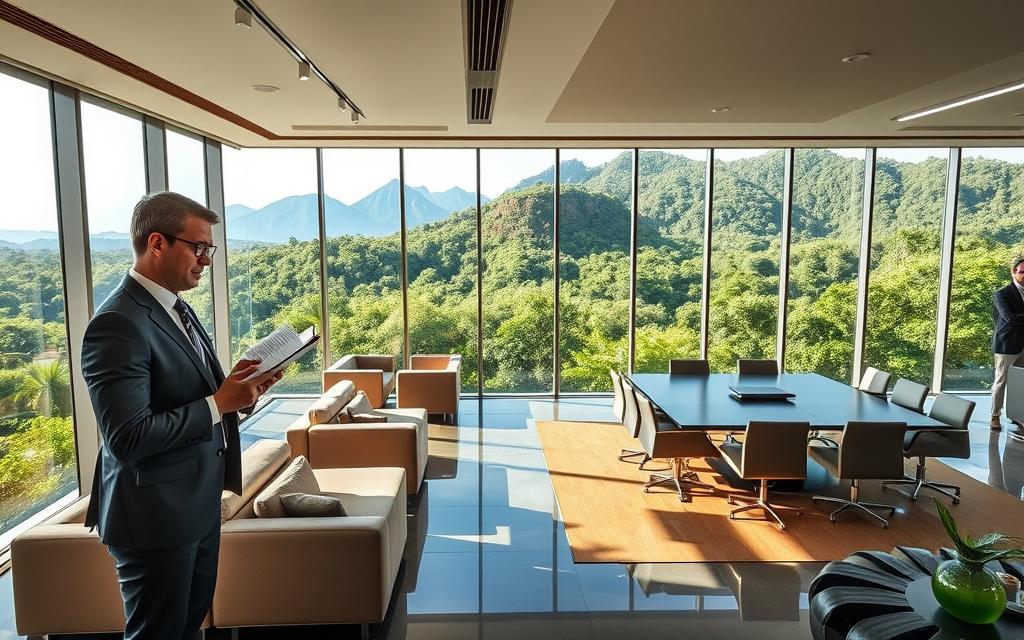How Much Investment is Required for Costa Rica Residency

Exploring Residency Options in Costa Rica
With its unique blend of natural beauty and economic stability, Costa Rica is an increasingly popular destination for expatriates. The country's stable democracy, growing economy, and exceptional quality of life make it an attractive option for those seeking residency through investment.
Costa Rica has become increasingly popular for foreign investors seeking residency options in a stable, democratic country with an exceptional quality of life. Understanding the investment requirements for Costa Rica residency is crucial for anyone considering relocating to this Central American paradise.
The minimum investment threshold for obtaining residency through investment in Costa Rica is a key consideration for potential expatriates. Costa Rica offers various pathways to residency, with investment being one of the most straightforward options for those with sufficient financial resources.
In this comprehensive guide, we'll explore exactly how much investment is required for Costa Rica residency, the different investment options available, and the complete application process. We'll also examine the additional costs beyond the initial investment, the benefits and limitations of investor residency, and help you determine if this path is right for your situation.
Understanding Costa Rica's Residency Programs

Costa Rica offers a diverse range of residency options tailored to different needs and circumstances. As we explore the various programs available, it's essential to understand the country's appeal as an expat destination and the types of residency options that can be pursued.
Overview of Costa Rica as an Expat Destination
Costa Rica has positioned itself as one of the most desirable expat destinations in Central America, attracting thousands of foreigners annually with its stable political environment, high standard of living, and natural beauty. The country's lush landscapes, vibrant culture, and modern amenities make it an attractive choice for those looking to relocate. We find that understanding the local culture and way of life is crucial for a smooth transition.
Types of Residency Options Available
Costa Rica offers multiple options for residency, each with different requirements for different situations in life. Whether you plan to retire, work remotely, invest, or join family, understanding these options will save you time, money, and stress during your transition to life in this Central American paradise. The main residency categories include Pensionado (for retirees with pension income), Rentista (for those with stable passive income), Inversionista (for investors), and family relation options. For more information on how long you can stay outside of Costa Rica while maintaining residency, you can visit this resource.
Each residency program comes with its own set of requirements, benefits, and limitations that applicants must carefully consider before choosing the most appropriate path. The Inversionista program specifically caters to those willing to make significant investments in Costa Rica's economy, whether through real estate, business ventures, or other qualifying investments.
The Inversionista (Investor) Residency Program

By investing in Costa Rica through the Inversionista Residency Program, foreign nationals can secure residency in a country known for its natural beauty and economic stability. This program is specifically designed for individuals who are willing to make a significant investment in Costa Rica's economy, contributing to its development and growth.
Who Qualifies for Investor Residency
The Inversionista Residency Program is tailored to foreign investors who are eager to contribute to Costa Rica's economic development. To qualify, applicants must demonstrate a minimum investment of $150,000 USD in qualified assets that benefit the country's economy. This program is particularly appealing to entrepreneurs, business owners, and real estate investors seeking to establish a long-term presence in Costa Rica.
Unlike other residency categories that focus on passive income or retirement funds, the Inversionista program emphasizes active investment in Costa Rica's economy, fostering a mutually beneficial relationship between the investor and the country.
Basic Eligibility Requirements
To be eligible for the Inversionista Residency Program, applicants must meet certain basic requirements. These include having a clean criminal record from their country of origin, possessing a valid passport with at least six months' validity, and being able to provide proof of investment registered with the Costa Rican authorities.
Additionally, applicants must demonstrate financial stability to support themselves during their residency period. The investment alone does not guarantee approval; applicants must also show means of sustenance. By meeting these requirements, foreign investors can successfully navigate the application process and secure residency in Costa Rica.
How Much Investment is Required for Costa Rica Residency?

When considering residency in Costa Rica, one of the primary concerns is the amount of investment required. Costa Rica offers various investment pathways to qualify for investor residency, each with its own set of requirements.
Minimum Investment Threshold of $150,000
The minimum investment threshold required for Costa Rica's investor residency program is $150,000 USD. This amount must be invested in qualifying assets registered with the Costa Rican government. The $150,000 threshold has remained stable in recent years, making Costa Rica's program one of the more accessible investor residency programs in the region. The investment amount is non-negotiable and must be fully documented through official channels to satisfy immigration authorities during the application process.
Qualifying Investment Options
There are several qualifying investment options for those seeking residency in Costa Rica. These include real estate purchases, business investments, and tourism/hospitality ventures. For real estate investments, the property must be valued at a minimum of $150,000 and titled in the applicant's personal name. Business investments require proof that the funds are being actively used in Costa Rica's economy, with proper registration and documentation of the business activities. Applicants can explore these options in more detail by reviewing success stories from existing investors.
Property Investment Requirements for Residency

Real estate investment in Costa Rica can lead to residency, but understanding the requirements is crucial. We will explore the specifics of using property as a qualifying investment for Costa Rica's investor residency program.
Real Estate as a Qualifying Investment
Real estate has traditionally been the most popular qualifying investment for Costa Rica's investor residency program, offering both a path to legal residency and potential appreciation in property value. When using property as your qualifying investment, the real estate must be valued at a minimum of $150,000 and must be registered in your personal name, not under a corporate entity. For detailed information on the required documents, you can refer to the documentation required for investor residency.
Recent Changes to Property Ownership Rules
Recent regulatory changes have significantly impacted how foreign investors can qualify for residency through property investment, with important shifts in ownership requirements. Previously, properties owned through corporations could qualify for the investment threshold, but current policies require personal ownership with the property titled directly in the applicant's name. These changes were implemented to address concerns about transparency and tax compliance, aligning Costa Rica's investor residency program with international standards.
Business Investment Options for Residency

For investors looking to reside in Costa Rica, business investments are a promising route. Beyond real estate, establishing or investing in a Costa Rican business represents another viable pathway to qualifying for investor residency in the country.
Establishing a Costa Rican Business
Investors can either create a new enterprise or invest in an existing Costa Rican business, provided the capital investment meets the minimum threshold of $150,000. When establishing a business for residency purposes, proper documentation of the investment is crucial, including business registration, tax identification, and proof that the funds have been transferred through official banking channels.
For more information on visa options for entrepreneurs, visit Jaros CR.
Tourism and Hospitality Investments
The tourism and hospitality sector offers particularly attractive opportunities for foreign investors seeking residency, with options including hotels, restaurants, tour operations, and other tourism-related ventures. Business investments must demonstrate economic benefit to Costa Rica, such as job creation, technology transfer, or contribution to underdeveloped sectors or regions.
Foreign investors should be aware that while they can own and operate businesses as residents, certain industries have restrictions or special requirements for foreign participation.
The Complete Residency Application Process

The process of obtaining residency in Costa Rica through investment involves several key steps that must be carefully followed. From making a qualifying investment to receiving your residency card, each stage is crucial for a successful application.
Document Collection and Authentication
The first step in the Costa Rica residency application process is gathering and authenticating the required documents. This includes proof of investment, a criminal background check, birth certificate, and marriage certificate (if applicable). All documents must be apostilled or authenticated by the Costa Rican consulate in your home country. Ensuring that your documents are properly authenticated is critical to avoid delays or rejections.
Submitting Your Application
Once your documents are in order, you'll need to submit your application to the Costa Rican Immigration Department (DGME). Upon submission, you'll receive a "Hoja trámite" (processing sheet), which allows you to remain in Costa Rica legally while your application is processed. For more information on the investment requirements that qualify you for residency, you can visit Jaros CR for detailed insights.
Navigating the Waiting Period
After submitting your application, you'll enter a waiting period that typically ranges from 3 to 9 months. During this time, you may be required to attend additional appointments, such as a biometric data collection at the Ministry of Public Security in San José. Once your application is approved, you'll receive your DIMEX (Documento de Identidad Migratoria para Extranjeros) residency card, initially valid for two years.
Costs and Fees Beyond the Investment
When applying for Costa Rica residency through the investor program, it's essential to understand that the costs extend far beyond the initial $150,000 investment. As we navigate the application process, various government fees and additional expenses arise, impacting the total cost of obtaining residency.
Government Fees and Official Expenses
The Costa Rican government charges several fees as part of the residency application process. These include an application filing fee, document authentication fees, a DIMEX card issuance fee of approximately $123, a fingerprinting fee, and potentially a refundable guarantee deposit. To get a better understanding of the process, you can review success stories from other applicants who have navigated these costs.
Additional Costs to Consider
Beyond government fees, applicants should budget for additional expenses, including document translation to Spanish, notary services, and transportation to appointments. Many applicants also choose to hire professional assistance, with attorney fees ranging from $600 to $3,000, depending on the level of service and complexity of the case. Once approved for residency, you'll need to enroll in Costa Rica's public healthcare system (CAJA), with monthly premiums typically ranging from $60 to $300 based on your declared income.
Benefits and Limitations of Investor Residency
Investing in Costa Rica residency offers a multitude of benefits that extend beyond the simple right to reside in this beautiful country. As we explore the advantages and limitations of this program, it's essential to understand how it can align with your long-term goals.
Rights Granted to Residents
As an investor resident in Costa Rica, you gain access to several rights and benefits. For instance, after maintaining investor residency for three years, you become eligible for permanent residency without additional investment requirements, providing long-term stability and reduced renewal obligations. You can also include your spouse and dependent children up to 24 years of age in your residency application, allowing your entire family to establish legal residence in Costa Rica.
Furthermore, as an investor resident, you have the right to own and operate businesses in Costa Rica, receiving dividend income and creating opportunities for ongoing income and economic participation. Costa Rica's renowned healthcare system is also accessible, offering comprehensive coverage at affordable monthly rates based on income through the Caja Costarricense de Seguro Social (CCSS), along with access to private healthcare facilities at costs significantly lower than in North America.
Restrictions and Obligations
While the benefits are substantial, there are certain restrictions and obligations to be aware of. For example, investor residents face limitations on employment; they cannot work as employees for Costa Rican companies but can own and operate businesses. To maintain your residency status, you must spend at least one day per year in Costa Rica and stay current with CAJA payments and other residency requirements.
Understanding these aspects is crucial to making an informed decision about whether the investor residency program in Costa Rica is right for you. The tax implications are generally favorable, as Costa Rica primarily taxes income earned within the country, with foreign-earned income generally remaining untaxed.
Conclusion: Is Investment Residency Right for You?
Costa Rica's investor residency program provides a straightforward path to residency for those willing to invest $150,000 in qualifying assets. This program is ideal for entrepreneurs, business owners, and individuals seeking a new home in a stable and prosperous country.
When considering this path, evaluate your long-term goals, financial situation, and the documentation process. With proper guidance, you can navigate the application process successfully and enjoy the benefits of Costa Rican residency, including access to quality healthcare and a high standard of living.


